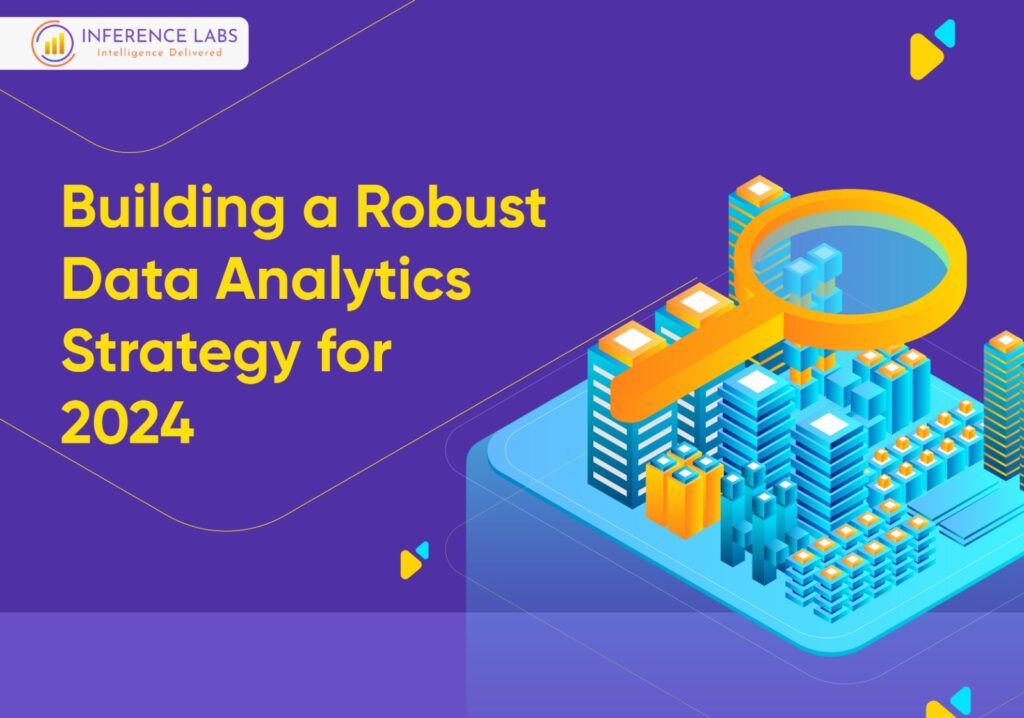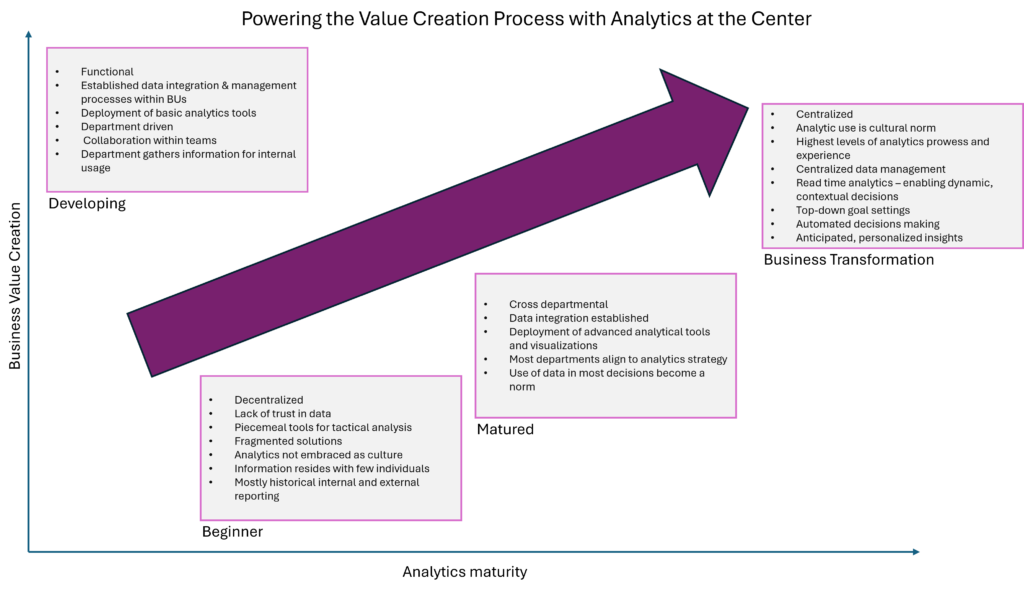
In the rapidly evolving landscape of data analytics, building a robust strategy for 2024 is crucial for businesses aiming to stay competitive and drive growth. As organizations increasingly rely on data to make informed decisions, the role of analytics consulting becomes more significant. This blog will explore key elements and best practices for developing a comprehensive data analytics strategy, focusing on the latest trends and insights for 2024.
Key Trends in Data Analytics for 2024
AI and Machine Learning Integration
AI and ML are revolutionizing data analytics by enabling more accurate predictions and automating complex tasks. According to Gartner, AI-driven analytics will be a critical component of data strategies, helping organizations to not only analyze data but also predict future trends and behaviors.
Data-as-a-Service (DaaS)
DaaS is emerging as a significant trend, offering on-demand data management services via the cloud. This approach allows businesses to access and analyze data without the need for extensive infrastructure, making data analytics more accessible and scalable.
Edge Analytics
Edge analytics involves processing data at the source rather than in a centralized data center. This reduces latency and enhances real-time decision-making capabilities, which is particularly beneficial for industries requiring immediate insights, such as manufacturing and healthcare.
Augmented Analytics
Augmented analytics leverages AI to automate data preparation, insight generation, and explanation. This trend is making data analytics more user-friendly and accessible to non-technical users, democratizing data insights across organizations.

Best Practices for Developing a Data Analytics Strategy
Engage Analytics Consulting Services
Analytics consulting can provide expert guidance and support in developing and implementing a data analytics strategy. Consultants bring a wealth of experience and can help align your data strategy with business goals, ensuring maximum value from your data investments.
Define Clear Objectives
Start by defining clear, measurable objectives for your data analytics initiatives. Whether it’s improving customer satisfaction, optimizing operations, or driving sales, having specific goals will guide your strategy and help measure success.
Invest in the Right Tools and Technologies
Choosing the right tools and technologies is crucial for effective data analytics. Consider investing in AI and ML platforms, data visualization tools, and cloud-based solutions like DaaS to enhance your analytics capabilities.
Ensure Data Quality and Governance
Data quality and governance are foundational to any data analytics strategy. Implement robust data governance policies to ensure data accuracy, consistency, and security. This will build trust in your data and support reliable decision-making.
Foster a Data-Driven Culture
Creating a data-driven culture within your organization is essential for the success of your analytics strategy. Encourage data literacy and provide training to help employees understand and utilize data insights in their daily work.
Leverage Predictive and Prescriptive Analytics
Predictive analytics uses historical data to forecast future trends, while prescriptive analytics provides recommendations for actions. Incorporating these advanced analytics techniques can help your organization anticipate changes and make proactive decisions.
Monitor and Optimize Continuously
Data analytics is not a one-time effort but an ongoing process. Continuously monitor your analytics initiatives, measure performance against your objectives, and optimize your strategy based on insights and feedback.

Conclusion
Building a robust data analytics strategy for 2024 involves staying on top of the latest trends, leveraging advanced technologies, and following best practices. By engaging analytics consulting services, defining clear objectives, investing in the right tools, ensuring data quality, fostering a data-driven culture, and continuously optimizing your efforts, you can harness the full potential of data analytics to drive business success.


